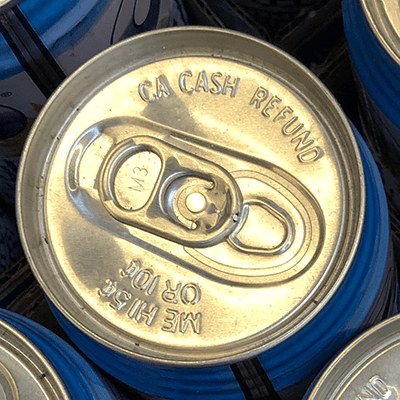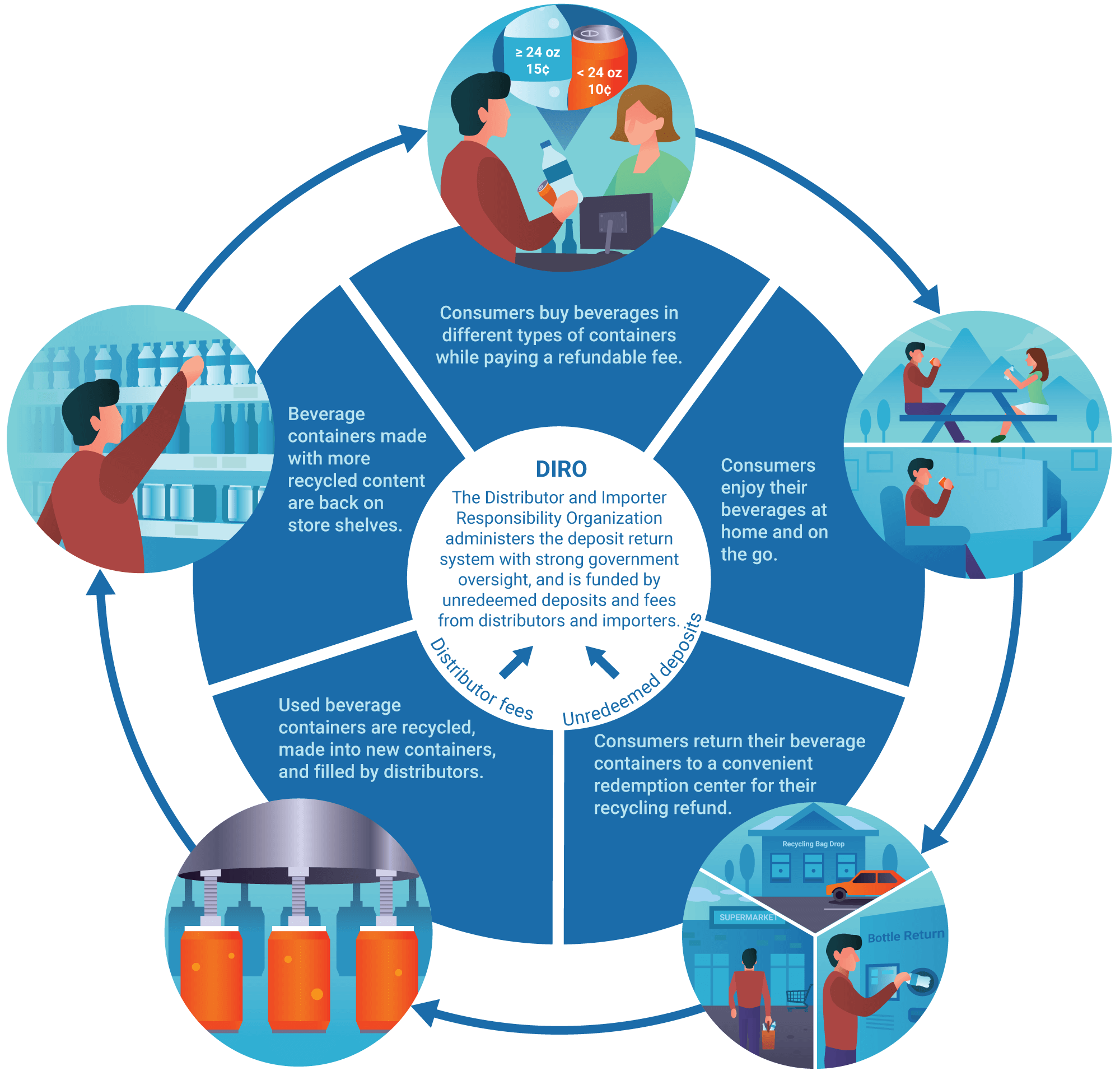What Are Recycling Refunds?
Recycling refunds, also known as beverage container redemption programs, deposit return systems, and “bottle bills,” are programs that place a fully refundable deposit (such as 5-10 cents) on beverage containers made from different materials like aluminum, glass, plastics, and others. Consumers pay that deposit at the time of purchase, and when they are done with the empty beverage containers, they can return them to a convenient redemption option to obtain their refund. Consumers essentially buy the beverage and borrow the container – receiving their refund when they recycle.

Why Consumers Want Recycling Refunds
Recycling refund programs have a proven track record of incentivizing recycling, reducing litter, and providing clean materials to serve as recycled content in new beverage containers. Currently, 10 states have active recycling refund programs. Those states continuously see higher recycling rates than states without these programs.
Returned containers help reduce litter and provide cleaner materials for manufacturers to use as recycled content in beverage containers. This means a domestic supply of recycled material for the containers people depend on and less use of virgin material, which in turn reduces carbon emissions.
And by leading to more recycling, these programs also create more jobs than when beverage containers are landfilled.
Importantly, consumers typically like to recycle and want their recycling efforts to be successful. In fact, 81% of Americans nationwide support beverage container redemption programs, according to a recent poll. Recycling refunds are also incredibly popular in the 10 states with such programs, where some 90% of consumers support them.
These recycling refunds are a convenient and effective way for consumers to support recycling.
How Do Recycling Refunds Work?
